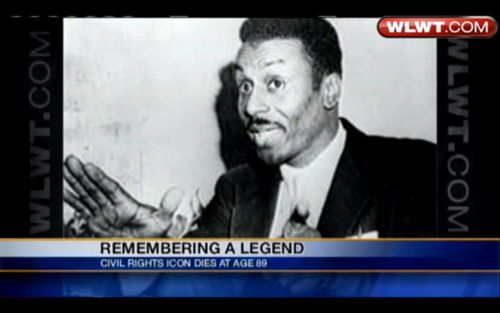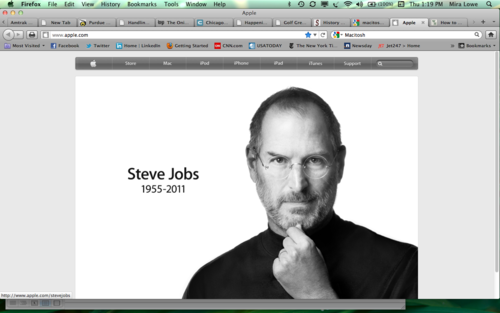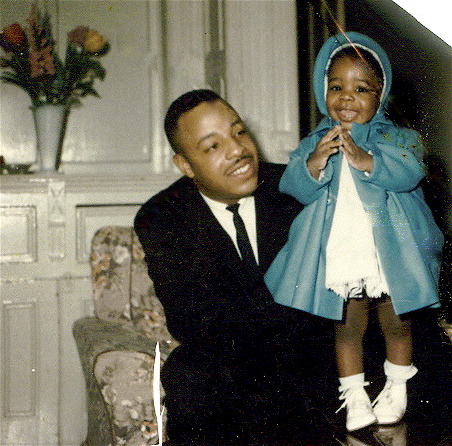Text
Career Advice for Women by Women in Business
JNY campaign delivers empowering words of confidence

I recently sought inspiration from a website URL I had bookmarked some time ago.
The site was for a marketing campaign created by Jones New York earlier this summer that urged women consumers to “empower their confidence.”
Part promotional, part motivational, the campaign was masterfully crafted to accentuate a woman’s power to make a difference in the workplace — while looking stylish, of course.
The project was fashioned using data from "The Shriver Report: A Woman’s Nation," a study by Maria Shriver and the Center for American Progress, and included stunning photography by Annie Leibovitz, inspiring videos of businesswomen in Washington, D.C., and an empowerment fund for new entrepreneurs pursuing their dreams.
I was delighted by two things in the JNY initiative: 1) It featured a dear counselor-friend of mine Sheila Brooks, founder and CEO of SRB Communications, an award-winning media and communications agency in D.C. Brooks is a fierce, no-nonsense lady who epitomizes the campaign catchwords: Visionary. Outspoken. Always in Style; 2) It created an interactive book of career wit and wisdom, with a foreword by Dee Dee Myers, former press secretary for President Bill Clinton and the first woman to hold that post.
The stories and quotes from women of all professions and walks of life in The Little Black Book are heartening. “Think about where you’re going, never mind where you’ve been.” “No guts, no glory. In this day and age, women must be fearless, but smart.” “The most attractive thing a woman can wear is confidence!” “Tossed by the waves, she does not sink.”
As the job market tightens and, in some cases, as workplaces become ruthless, women need to be strong and courageous. They also need to be supportive of each other. Individually and collectively, we must embrace our confidence and not downplay our contributions. We must know our value and know that we are valuable.
On the JNY website, Meyers summed it up best by saying, “In short, we have to own our accomplishments and we have to talk about them. It’s not an exercise in chest beating. It’s a way to make sure that goals are met, best practices are recognized, and credit is fairly distributed. Only then will women be able to contribute to the best of our abilities. And only then will we be able to make the difference that we know we can make.”
Now that’s a campaign definitely worth our attention.
Please visit my website: http://reluctantrockstar.weebly.com/
#Jones New York#Sheila Brooks#SRB Communications#Dee Dee Myers#Bill Clinton#The Little Black Book#career#confidence#empowerment#women#Maria Shriver
1 note
·
View note
Text
Bill Clinton on the Economy, Obama & Steve Jobs
Former president talks about job creation and leadership in the 21st Century
I first met Bill Clinton in August 2005 at the National Association of Black Journalists’ 30th Anniversary Convention in Atlanta. I was chairwoman for the anniversary celebration and the former president was the keynote speaker at our opening ceremony.
He is very personable, focused and has an arresting ability to connect with individuals and audiences. It has been said that Clinton makes you feel like you are the only other person in the room when talking with him.
This week, Clinton came to Chicago to talk about the economy and his new book, “Back to Work,” as a keynoter at Chicago Ideas Week (CIW). The one-on-one talk between Clinton and Time magazine managing editor Richard Stengel was held at the Chase Auditorium and was greatly attended for a mid-morning event. (No phone signal though on the lower level for us Tweeters!)
With humor and gravitas, Clinton shared his thoughts on how to get America back on track. “You can’t get anywhere with an anti-government strategy,” he said. We must all work together to make this country work. Right now, “We are majoring in the minors.”
He also noted that extreme partisanship and name-calling are very destructive. We have gotten to a place of a new form of bigotry: “We don’t want to be around anybody who disagrees with us.”
Clinton said President Obama got “hobbled” early on in his presidency when dealing with the failing economy because of outdated data. The depth of the financial crisis was much lower than initially realized.
What is required now are creative strategies that will put people back to work and help them stay in their homes, he said. “You can not reduce debt without growth.” A few of Clinton’s back-to-work strategies include:
1. Go where the money is — overseas. Use repatriated corporate earnings for the purpose of job creation in the U.S.
2. Create sources of new employment every five to eight years to keep unemployment numbers low.
3. Bolster the mortgage sector so that mounting foreclosures don’t continue to drag down the market. Grant five-year leases to those in foreclosed homes, which keeps empty properties off the market and allows families to stay in their houses until the economy improves.
4. Invest in infrastructure. Upgrade our buildings, power grids and technologies to improve our efficiencies and to employ more citizens.
The former president’s ideas seemed to have resonated with the CIW audience, who occasionally applauded, giggled, nodded or smiled in appreciation of his points.
On a more personal note, Stengel asked Clinton about Steve Jobs and leadership in the 21st Century.
Clinton said he was grateful to Jobs for offering a country respite to him during his presidency so that Clinton could enjoy some quality private time with his family away from the public eye. “Plus, even I can work an iPad and an iPhone,” he quipped.
A short time before Jobs’ passing, Clinton said he visited with him. He recounted what Jobs said during their last conversation: “You know, this cancer that I have is very clever. I have beaten it back repeatedly, but I have fired all my ammunition and it keeps coming up with new ways to attack me. I’m not sure I got any more weapons left but I’ve had a good time trying to beat it.”
Clinton said Jobs was very cleared-eyed and determined. He figured out what his gift was and he nurtured it. Clinton's parting words to the CIW crowd were: “Nourish your gift, and don’t quit.” No one can argue with that.
Visit my new website: http://reluctantrockstar.weebly.com/
16 notes
·
View notes
Photo

GIRL POWER: Liberian President Ellen Johnson Sirleaf, Liberian Leymah Gbowee and Tawakul Karman of Yemen (l-r) were awarded this year's Nobel Peace Prize for their "non-violent struggle" for women's rights. “We cannot achieve democracy and lasting peace in the world unless women achieve the same opportunities as men to influence developments at all levels of society,” Nobel Committee chairman Thorbjorn Jagland said.
8 notes
·
View notes
Quote
"People with humility don't think less of themselves, they just think of themselves less."
— Ken Blanchard
0 notes
Text
Shuttlesworth Led With Law of Momentum
A leader who wasn't afraid to be a driving force for change

Rev. Fred Shuttlesworth may not be as big of a household name as Steve Jobs but his life’s work also helped changed a nation, inspiring it to reach for higher moral ground.
As a pioneer of the Civil Rights Movement, Shuttlesworth, who died this week at age 89, was at the brutal forefront of the fight against racial injustice in Birmingham, Ala. in the 1950s and ’60s.
He endured bombings, beatings and arrests but never ceased in his efforts to integrate a city where he lived and preached that had come to be known as “Bomingham,” because of several racially motivated bombings.
When I think about the Civil Rights Movement, some of the most graphic and indelible images that come to mind are those of young, nonviolent demonstrators in Birmingham who were attacked by police with tear gas, dogs and water hoses as they marched for equal rights.
Shuttlesworth led those protests that galvanized the country and ultimately lead to desegregation of public places in Birmingham and to the Civil Rights Act of 1964.
What Shuttlesworth had on his side besides faith is “The Law of The Big Mo,” which author John Maxwell talks about in his book, The 21 Irrefutable Laws of Leadership. “Mo” is short for momentum.
Says Maxwell: “It takes a leader to create momentum. Followers catch it … But creating it requires someone who can motivate others, not who needs to be motivated. Harry Truman once said, ‘If you can’t stand the heat, get out of the kitchen.’ But for leaders, that statement should be changed to read, ‘If you can’t make some heat, get out of the kitchen.’”
Through his fiery style and dogged determination, Shuttlesworth was destined to bring the heat and produce everlasting change.
He was often noted for his courage but Shuttlesworth’s guiding principle as a leader was: Live for what you can give, not for what you can get.
He gave a whole lot during his lifetime, so that many of us can get in ours.
Watch Courtis Fuller’s look back at Shuttlesworth’s life and legacy:
http://www.youtube.com/watch?v=BqSABP7OY7U
Listen to NPR’s story:
http://www.npr.org/2011/10/05/141083711/rev-fred-shuttlesworth-civil-rights-pioneer-dies
#Fred Shuttlesworth#Birmingham#Alabama#Civil Rights Movement#Civil Rights Act of 1964#John Maxwell#Leadership#The Law of The Big Mo
13 notes
·
View notes
Text
3 Keys to Steve Jobs' Personal Success

Making his life's work a way of life for others
My first job out of J-school was working at a small newspaper in Shrewsbury, N.J.
One of my many tasks was mining information that was being transmitted from a strange and unfamiliar box, a machine they called “the Macintosh.” What in the world was that?!!
Little did I know then that that “Mac” would be a precursor of how I would function in my life today.
While PCs still ruled my world, at work and at home, I was reacquainted with “the Mac” in the early 2000s when a close friend introduced my husband and I to a new line of Apple products, including the Powerbook and the iMac. We were clueless.
The sleek, silver Titanium Powerbook had a 15+-inch screen, a DVD-ROM, mega hard drive, and it was only 1-inch thick. The iMac was this cool looking white contraption, with a movable flat LCD screen that extended with a silver arm from a spherical base, which housed a G4 processor and CD-RW/DVD-R Super Drive. Whoa!
We immediately took to the simplicity of the technology and creativity that the Powerbook and iMac fostered, and we haven’t looked back since.
I must admit now I am an early adopter of anything Apple. I had the first-generation iPod. The first-generation Nano. The early iBook. The first-generation iPhone. And, yes, the first-generation iPad. Apple, for me, has become a way of life.
So, it is sad to think that Steve Jobs, Apple’s co-founder and leading innovator-in-chief, is no longer with us. His vision and company have changed the game in so many ways for so many people. Yet, his legacy does live on and continues to inspire.
In looking back at Jobs’ career and his own words, there are three key leadership qualities — we can embrace — that propelled him to greatness.
1. Perseverance: Believe in your calling and be not deterred by obstacles or naysayers. “Sometimes life hits you in the head with a brick. Don't lose faith.”
2. Passion: Love what you do. Find work that truly fulfills you and never settle for anything else. “The only way to be truly satisfied is to do what you believe is great work. And the only way to do great work is to love what you do.”
3. Purpose: Follow your heart and intuition. “You have to trust in something — your gut, destiny, life, karma, whatever. This approach has never let me down, and it has made all the difference in my life.”
Jobs’ has left us great blueprints for business and personal success. He once said, “I want to put a ding in the universe.” We should want to, too.
For other Jobs-isms, http://mashable.com/2011/10/05/steve-jobs-quotes/#28583
24 notes
·
View notes
Text
How Do You Manage Someone Who Is Trying to Manage You?
8 Tips for Journalism Students on Handling Sources
At a recent forum titled Rating Rahm: The Media Assesses Mayor Emanuel at Loyola University Chicago, a panel of distinguished journalists and commentators gathered to discuss the mayor’s first 100 days in office.
The lively conversation was moderated by Chicago Tonight anchor Phil Ponce and the panelists were: Carol Marin, political editor at NBC-5; Charles Thomas, political reporter for ABC-7; Kristen Mack, reporter for the Chicago Tribune; Laura Washington, columnist for the Chicago Sun-Times and political analyst for ABC-7; and Mick Dumke, who covers city hall for The Reader.
While the panel conceded that it was still too early to truly appraise Emanuel’s mayoral performance, what did emerge from their comments was an interesting profile of Chicago’s new leader.
Said to be the city’s first elected millionaire mayor — he worked as an investment banker for a short time — from the North Side, Emanuel was described as energetic, focused, intellectually astute, incredibly witty, a great public speaker, and driven to make significant changes in how the city operates. Surprisingly for a politician, he seems to be thin-skinned and doesn’t take criticism well.
“He is a master at defining the issue,” said one of the panelist. Always positive, yet always in “campaign mode,” seeking to control the message.
How then do you manage someone (i.e. a politician, newsmaker, high-level source) who is trying to manage you?
That’s the question Ponce tossed to the panel, directing them to give tips to the journalism students in the audience. Here are the Top 8:
1. Decline to go off the record. Sources have to be willing to talk if they want their position to be reported.
2. Remember your job is not to simply cover press releases, it is to get behind the story. Dig deeper.
3. Demand respect. Don’t be pushed over, belittled or berated. Simply say, “I won't be talk to that way.”
4. Don’t go to the usual sources to get what you want. Find new ones to talk to.
5. Develop sources by going to events to cultivate relationships.
6. Don't rely on the press office to give you all the information. (See #2 & #4 again!)
7. Call officials out if they don't answer your questions. Public shaming works.
8. Write the truth. That is what the public is counting on you to do.
#Loyola University Chicago#Mayor Rahm Emanuel#politics#journalism#phil ponce#carol marin#charles thomas#kristen mack#laura washington#mick dumke
4 notes
·
View notes
Text
A winning combination: Brains, beauty and benevolence

Imagine in today’s culture of prevalent cosmetic surgery, fad diets, bleaching, tanning, etc., in which we seek and admire the “perfect” image, a young woman has the gumption to say: “Thank God I’m very satisfied with the way God created me, and I wouldn’t change a thing.” That was Leila Lopes’ answer when asked about what physical trait she would change if she could in the recent Miss Universe 2011 pageant in Sao Paulo, Brazil. As we know now the 25-year-old Miss Angola won the crown. She was the first winner to ever have been selected from her country after defeating 88 other competitors from around the world.
Her reply reflects a healthy self-esteem and deep respect that all women – young, old and in-between – should take to heart as we evaluate ourselves.
Lopes went on to say, “I consider myself a woman endowed with inner beauty. I have acquired many wonderful principles from my family, and I intend to follow these for the rest of my life.”
Her self-worth and values seemed to have been nurtured by close, central relationships rather than outer forces. Lopes’ desire to serve her country also speaks to her inner beauty.
“I work with poor kids, I work in the fight against HIV. I work to protect the elderly, and I have to do everything that my country needs,” she says. “I think now as Miss Universe I will be able to do much more.” (www.missuniverse.com)
At the end of the day our inner beauty — our soul, our spirit — is what matters. It is how we live, how we treat others, how we use our talents, abilities, gifts in the world.
Leading by example, Lopes’ words should inspire us regardless of what size, shape, height, weight, age or hue we are to live with grace, integrity and purpose.
6 notes
·
View notes
Text
Man of few words spoke volumes with actions

In this inaugural posting of my “Reluctant Rock Star” blog about leadership, influence and personal success, I honor one of my first role models, my dad, the late Allen Alonza Thomas, this Father’s Day weekend.
Those who knew my father would agree that he wasn’t much of a talker. He was the silent type, mostly observing and listening to those around him.
When you did get him talking, however, it was primarily about sports — and in particular about his beloved New York teams: the Knicks, the Yankees and the Giants. He rooted for the Mets, too, since baseball was his favorite pastime. He was a star third baseman on the high school and semi-professional levels. The Brooklyn Dodgers even drafted and assigned him to its minor league team in Marietta, Ga.
I imagine now he would have had lots to say about the recent NBA Finals between the Mavs and the Heat.
He was the eldest boy of six children born to James and Sarah Thomas in rural Garysburg, N.C. After graduating from high school he helped to support his family by working on their farm. He eventually moved north, to Brooklyn, where he got reacquainted with a young woman from his hometown named Clara, who earlier had moved to the “big city” to pursue her dreams of being a nurse. In time, he and Clara would wed and have a daughter. (Dad picked my middle name, LaVerne).
Growing up, my father dispensed advice to me in bite-size nuggets, never long-drawn lectures or speeches. A humble and hardworking man, though not perfect, Dad spoke to me by his example. Even in their brevity, his words were packed with years of living and common sense.
Medical studies assert the most important person in a young girl’s life is her father. She takes cues from him – emotionally, physically and spiritually. The bond, or lack thereof, between a father and a daughter can shape her life profoundly.
I watched how my Dad treated people with courtesy.
I watched his work ethic — owning a barbershop and making a decent living.
I watched how he carried himself — with dignity and honor.
I watched how he dressed and impressed. He loved his fedoras and, as a little girl, I played with his cuff links. I suppose that’s why I like wearing them today.
I watched how he respected and revered my mother as well as his own.
In a Wall Street Journal article, “Daughters and Dad’s Approval,” published this week, author Peggy Wexler states: “No matter how successful their careers, how happy their marriages, or how fulfilling their lives, women told me that their happiness passed through a filter of their fathers’ reactions. Many told me that they tried to remove the filter and — much to their surprise — failed.”
Wexler, who researched the lives of independent, high-achieving women and the connection with their fathers, describes the relationship as “potent.”
I agree. I never doubted my father’s love and support for me throughout my life. I am grateful that he was present and able to witness my progression.
Even though he may not have articulated his feelings a lot, Dad expressed them to me with his simple gestures: a smile, a nod, a laugh, a pat on the back, a word of encouragement. He was a man of few words, but his deeds spoke volumes — shining examples that continue to live on in me.
Can you be supremely successful yet maddeningly modest? I say absolutely. Welcome to my Reluctant Rock Star blog about leadership, influence and personal success — and learning to be OK in the spotlight and not questioning the divine plan for your life.
2 notes
·
View notes